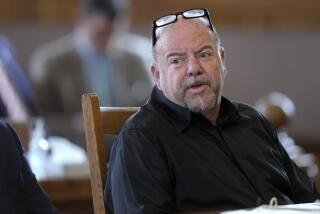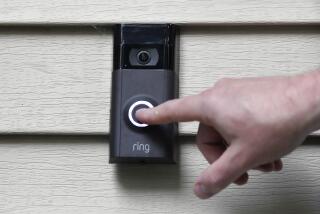Agoura Hills firm accused of making illegal telemarketing calls is shut down, FTC says
- Share via
An Agoura Hills company accused of making tens of millions of illegal telemarketing calls selling worthless auto warranties and credit card interest rate reduction programs has been shut down, the Federal Trade Commission said Thursday.
A federal judge in Chicago issued a temporary restraining order against SBN Peripherals Inc. following a complaint made by the FTC. It accused the company of violating a number of its telemarketing rules, such as making unsolicited recorded telemarketing calls — also known as robocalls — to consumers who have not given their written consent to do so and to those listed on the national Do Not Call Registry.
“You can’t make prerecorded calls unless [the consumers have] agreed to it in writing,” said C. Steven Baker, director of the FTC’s Midwest region. “They were also making false claims in the messages they sent.”
Baker said a large portion of the alleged 370 million calls SBN made to consumers nationwide from April 2009 to February 2010 were robocalls, although the exact percentage is unknown. AT&T Inc. reported to the agency that the company made 2.4 million calls in just one day in April 2009. The two phone numbers that generated the most complaints to the FTC of any other robocall number in the last year were from SBN, Baker said.
The temporary restraining order has effectively shut down SBN’s operations and has frozen its financial assets, the FTC said. A receiver has been appointed to take over the company’s operations while the case is pending.
Johan Hendrik Smit Duyzentkunst, owner of SBN, declined to talk about the case or his business but said he was looking for an attorney. “If the federal government freezes all of your company assets, it becomes extremely hard in today’s world to get a good lawyer,” Duyzentkunst said.
The FTC said Duyzentkunst might also own foreign firms Asia Pacific Telecom Inc. and Repo BV, which are listed as defendants in the case.
James Davis, staff attorney for FTC’s Midwest region, said Duyzentkunst’s company earned nearly $9 million from robocalls made on behalf of clients from January 2008 to January 2010. SBN made the calls from Los Angeles, and if consumers followed the prompts to connect to a live operator, they would be sent to one of its clients in another part of the country who was selling the services.
Although Duyzentkunst wouldn’t make money directly from consumers, “he’s directly liable for all the consumer harm garnered by his fraudulent clients,” Davis said.






